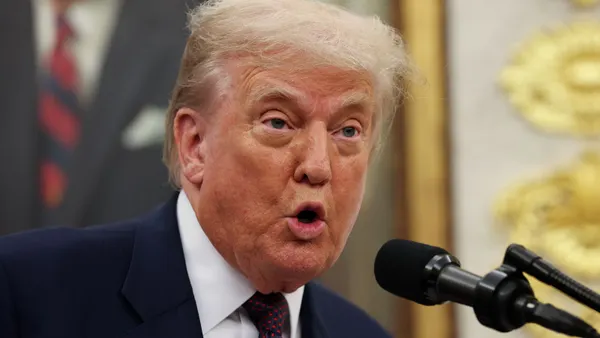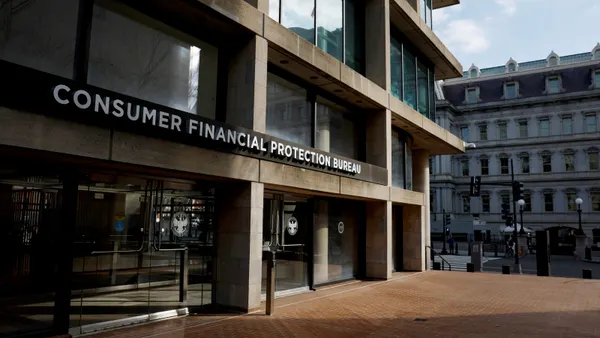The Federal Deposit Insurance Corp. on Monday ordered Utoppia, a neobank that offers crypto wallets, to stop making “false and misleading statements” about deposit insurance.
As recently as Jan. 5, the fintech’s website claimed Utoppia was “insured by the FDIC,” according to the regulator.
And as recently as Feb. 12, the neobank said on social media in Spanish that it is backed or protected by the FDIC, the agency said.
“Utoppia is not FDIC-insured, and the FDIC does not insure crypto assets,” the FDIC said in a statement. “By not distinguishing between US-dollar deposits and crypto assets, the statements imply FDIC insurance coverage applies to all customer funds (including crypto assets).”
Fine print on the bottom of Utoppia’s website says its cash management services are provided by Synapse Brokerage LLC, which allows customers to sweep uninvested cash balances into certain FDIC-insured bank accounts at Synapse program banks.
Banking services for the Utoppia’s U.S. dollar account are provided by FDIC-insured Lineage Bank, according to the fintech.
The neobank’s disclosures, however, “are not clear and conspicuous and are not in close proximity to the relevant representations about FDIC insurance, which further implies that Utoppia is FDIC-insured,” the FDIC said.
“Whenever anyone other than an insured depository institution states that a product is insured by the FDIC, that person must identify the insured depository institution(s) where the funds will be placed," the FDIC said. "Failure to do so constitutes a material omission in violation of Section 18(a)(4) of the FDI Act and Part 328."
The FDIC’s cease-and-desist letter is addressed to Utoppia founder Stefano Angeli and Utoppia CFO Martin Zanella, the latter of whom, according to the FDIC, has made false claims of deposit insurance on LinkedIn. That post has since been deleted.
A representative for Utoppia did not immediately respond to Banking Dive’s request for comment.
The FDIC’s letter comes as the regulator has announced plans to crack down on entities that make misleading statements about deposit insurance.
The agency issued a proposed rule in December that aims to modernize the rules governing the use of the official FDIC sign and insured depository institutions’ advertising statements.
Under the proposed rule, insured depository institutions would be required to display a new FDIC sign across all of their digital channels.
“Through this proposal, the FDIC hopes to extend the certainty and confidence consistently provided by the FDIC official sign at traditional IDI branch teller windows, for almost 90 years, to the evolving digital channels through which depositors are increasingly handling their banking needs today,” the agency said in a statement last year.
The FDIC has set its sights on crypto-related entities in the past.
Ahead of the collapse of FTX US, the FDIC in August sent cease-and-desist letters to the crypto-asset exchange, as well as several crypto media outlets, claiming the firms made false and misleading crypto-related claims about deposit insurance.













